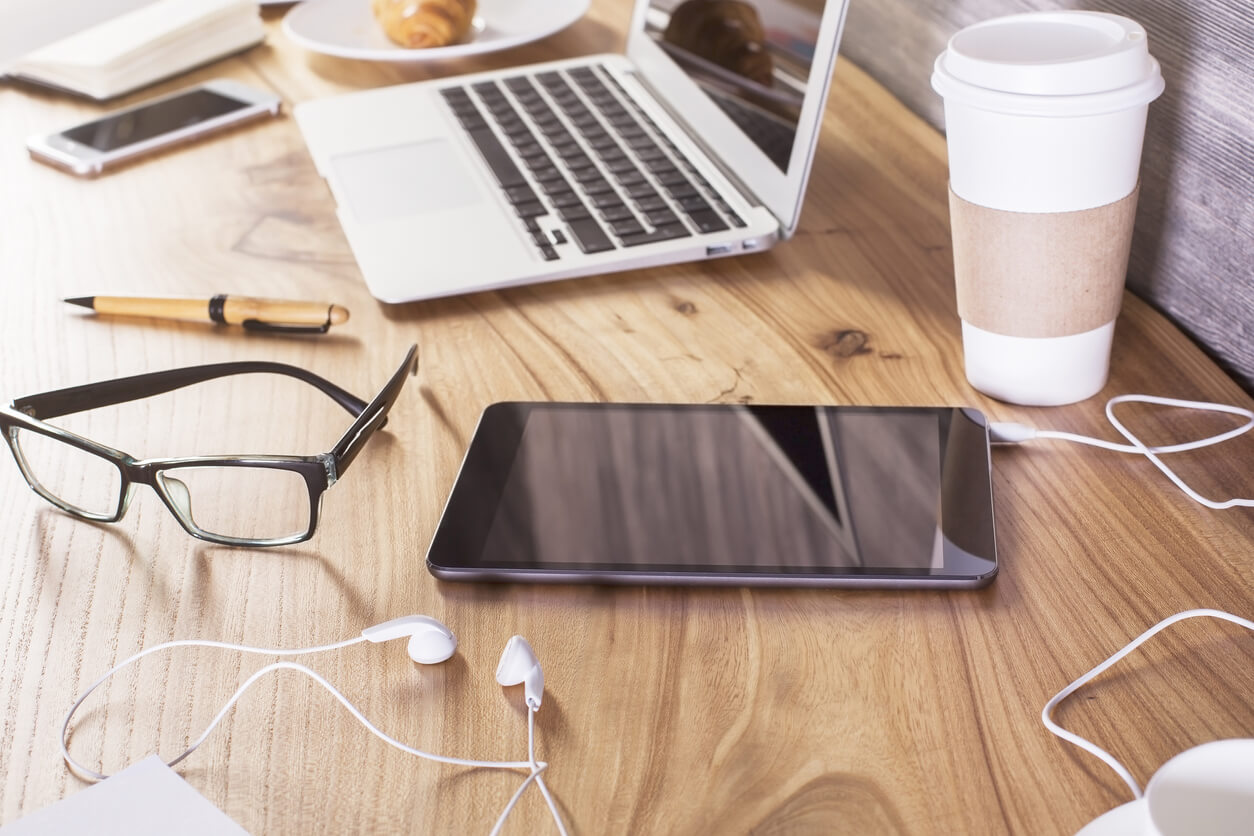How do you feel about your phone?
This small brick of glass and electricity is certainly a blessing. Yet, it is also one of the biggest curses of living in modern times. Your phone gives you all the information you could ask for in the palm of your hand, but it has its drawbacks too.
And it’s not just your phone that does this.
You also have computers and TVs that provide nonstop distraction. You can order just about anything online, watch your favorite show whenever and wherever you want, check on your friends and family without even talking to them, and work anytime and from anywhere you need to.
Our phones help us with a lot of tasks. It makes perfect sense that on average, a person will spend 10 hours each day on some sort of screen.
Perhaps your goal is to build relationships, enhance your fitness, or improve your mental health. With less time plugged in to our devices, we can achieve goals we previously thought were impossible.
But technology is still a prominent part of our culture, and we can’t avoid it completely. So how can you spend less time on your devices without fully unplugging?
Here are three ways you can unplug from your devices and enter a new, recharged lifestyle.
1. Get rid of unnecessary apps
The first step to unplugging isn’t necessarily going “cold turkey.” You’ve probably tried that already.
Unfortunately, spending less time online isn’t easy.
A realistic first step is to go through your apps, especially social media apps, and delete any harmful or unnecessary ones. When you’re going through your apps, think about which apps you spend the most time on. Then you can ask yourself if these apps are adding to your life or detracting from it.
Some apps can improve life with your family and friends. If an app helps you to connect with people, you can consider keeping it. Maybe you and your friends use an app to play a game together, or maybe your family has an app that keeps track of everyone’s schedules. Apps like these can be useful.
But you have to be careful though. Social media was initially built to help you connect with your loved ones, but does it always do that? It may be a good idea to measure your time on social media to see how you’re really using it. It might feel like you were only on the app for a few minutes when you’ve actually been scrolling for over an hour.
You can start by deleting any apps that you find harmful or unnecessary. If you are too attached to the app, you could try moving it off your home screen to see if that helps you spend less time on it.
That way, you can start to train yourself to use your phone in healthy ways.
2. Set goals
One of the hardest parts of unplugging is learning how to deal with spare time. You will have to resist the urge to get back on your device when you feel bored. The most effective way to combat this is to create goals for yourself.
This can be a fun activity. Maybe you’d like to learn a new skill, spend time with your kids or your significant other, or get in the best shape of your life. This is your chance to dream up something that thrills you.
Making several small, realistic goals will help you to preoccupy your mind and aid your personal growth. Maybe one of your goals is to go on a weekly walk. Maybe you want to write a poem or create an art piece. Or perhaps you want to join a fitness class or a church small group.
You can also build up to one larger goal. For example, if you want to grow deeper relationships with people around you, try taking small steps such as reading books on relationships, making plans with your loved ones, and calling or meeting with your friends once a week. These can help you grow in specific areas of your life.
It is important to have activities to do both by yourself and with others in your spare time. When you work on your own activity, you don’t need to worry about other people’s schedules.
But creating goals with others can be fun too. Your friends can hold you accountable, make things more fun, and help skyrocket your growth.
This is what makes unplugging worthwhile.
3. Create boundaries
As you become more established in your new lifestyle, you can start creating boundaries around screen time. Since technology is deeply woven into today’s culture, you probably can’t avoid it completely. Setting rules for your screen usage ensures that you don’t go back to where you were before.
There are many ways to create boundaries, which means you can be creative with your boundaries! In fact, creativity is the key to success as you avoid screens. You’ll likely find that the more time you spend away from your phone, the more creative you will be.
You can set a boundary for how much time you spend online. Maybe you decide to spend a maximum of one hour on social media each day. You can hold yourself accountable by setting a timer, and you can start and stop the timer according to any interruptions throughout that time.
For movies, shows, or videos, you can set aside certain days to watch them, or you could set a limit for how many TV shows or movies you watch each week.
You can also set a boundary for the type of content you consume. For example, you could allow yourself to watch articles, how-to videos, or anything that helps you achieve your goal. But it’s still important to set limits on these things as well. The internet can quickly suck you into its endless information vortex.
You can also use social media as a reward after you’ve made progress toward your goals. Maybe you spend 15 minutes on social media after dinner. Perhaps you promise yourself a YouTube video after calling a friend to catch up, or you allow yourself an hour to play your favorite video game after you work on an art piece.
This can help you grow and make it easier to unplug over time as you build up a repertoire of skills and relationships. And hopefully, those skills and relationships will become much more rewarding than plugging in to your device.
Perhaps your unplugging goal is to help people in your community! If so, Life 102.5 has a variety of ways for you to help the Madison community. Check out our community events page or sign up for our emails in order to stay up-to-date on great new ways to get involved.










